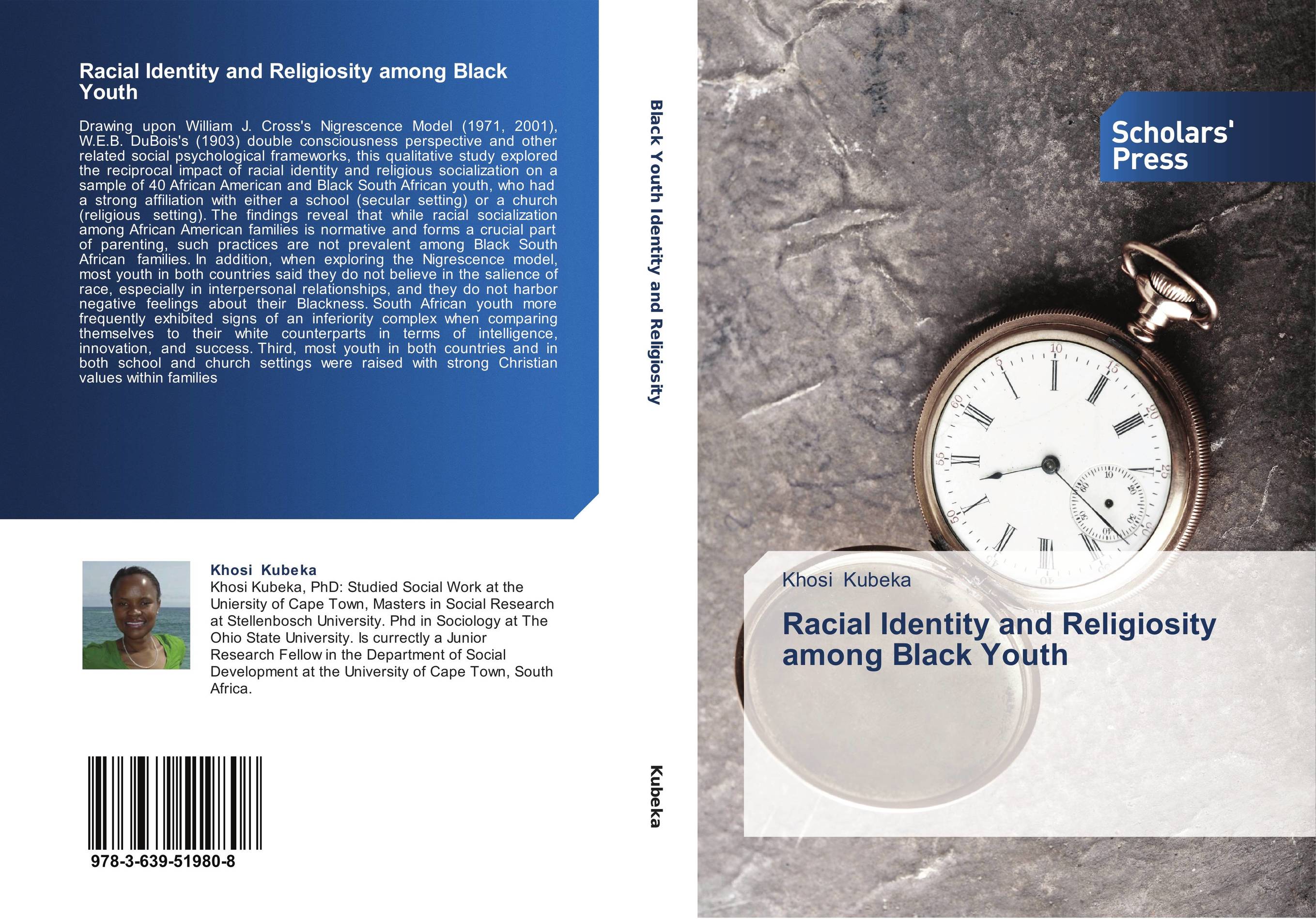| Поиск по каталогу |
|
(строгое соответствие)
|
- Профессиональная
- Научно-популярная
- Художественная
- Публицистика
- Детская
- Искусство
- Хобби, семья, дом
- Спорт
- Путеводители
- Блокноты, тетради, открытки
Racial Identity and Religiosity among Black Youth.

В наличии
| Местонахождение: Алматы | Состояние экземпляра: новый |

Бумажная
версия
версия
Автор: Khosi Kubeka
ISBN: 9783639519808
Год издания: 2013
Формат книги: 60×90/16 (145×215 мм)
Количество страниц: 324
Издательство: Scholars' Press
Цена: 61626 тг
Положить в корзину
| Способы доставки в город Алматы * комплектация (срок до отгрузки) не более 2 рабочих дней |
| Самовывоз из города Алматы (пункты самовывоза партнёра CDEK) |
| Курьерская доставка CDEK из города Москва |
| Доставка Почтой России из города Москва |
Аннотация: Drawing upon William J. Cross's Nigrescence Model (1971, 2001), W.E.B. DuBois's (1903) double consciousness perspective and other related social psychological frameworks, this qualitative study explored the reciprocal impact of racial identity and religious socialization on a sample of 40 African American and Black South African youth, who had a strong affiliation with either a school (secular setting) or a church (religious setting). The findings reveal that while racial socialization among African American families is normative and forms a crucial part of parenting, such practices are not prevalent among Black South African families. In addition, when exploring the Nigrescence model, most youth in both countries said they do not believe in the salience of race, especially in interpersonal relationships, and they do not harbor negative feelings about their Blackness. South African youth more frequently exhibited signs of an inferiority complex when comparing themselves to their white counterparts in terms of intelligence, innovation, and success. Third, most youth in both countries and in both school and church settings were raised with strong Christian values within families
Ключевые слова: Racial Socialization, Black Adolescents, Religious Socialization, identity formation



